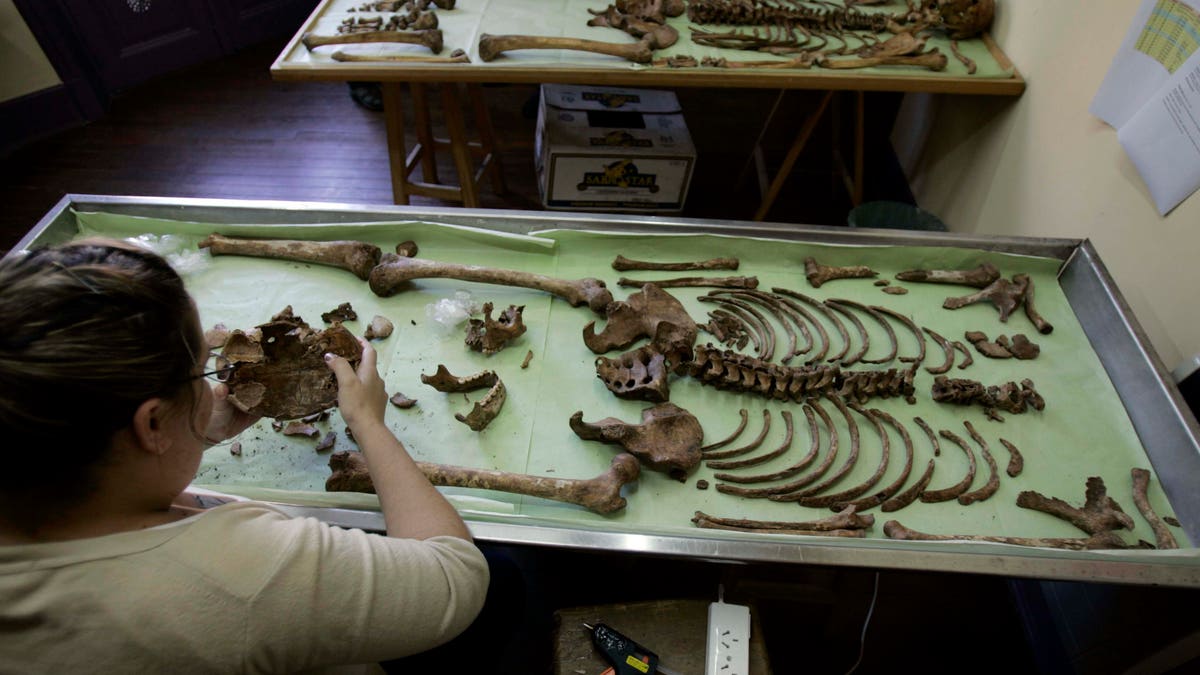
March 11, 2008 FILE photo. Mariana Selva, from the independent Argentine Forensic Anthropology Team, examines an unidentified skeleton at a forensic lab as part of an effort to identify the victims of Argentina's Dirty War in Buenos Aires, Argentina. (AP)
BUENOS AIRES, Argentina – Forensic scientists have finally identified a mutilated corpse that washed up on the shore in 1976 as that of a Chilean leftist who was among the first victims of the Argentine dictatorship.
The Argentine Forensic Anthropology Team used genetic evidence and fingerprints taken by Uruguay's military government at the time to identify the body as Luis Guillermo Vega Ceballos, an activist with Chile's Revolutionary Workers Party.
Vega Ceballos had been detained in Buenos Aires on April 9, 1976, along with his pregnant Argentine wife Laura Gladis Romero, whose body has never been found. The human rights group Grandmothers of the Plaza de Mayo believes she was among hundreds of dissidents killed after giving birth in captivity, and whose babies were raised by military or police families. The child would be turning 36 years old this month.
The discovery was announced Thursday night in Uruguay, where Peace Commission Secretary Graciela Jorge said "it closes a small chapter" in the history of the dirty wars that right-wing militaries fought against leftist revolutionaries in the 1970s.
Vega Ceballos' corpse showed clear signs of torture when it washed up on the coast of neighboring Uruguay, which also was ruled by a dictatorship, from 1973 to 1985. He had been mutilated and his hands were tied. Still, Uruguayan authorities followed their laws and took fingerprints that eventually enabled forensic scientists to identify the body.
Jorge said similar methods were used to identify two more of the eight bodies that washed up on the coast that year as Horacio Abeledo and Roque Montenegro, both Argentines.
Rights activists suspect they were thrown from Argentine military planes into the wide Rio de la Plata that separates Uruguay and Argentina. Witnesses in Argentina have described torture victims being drugged and flown alive into the sea on the so-called "death flights."
